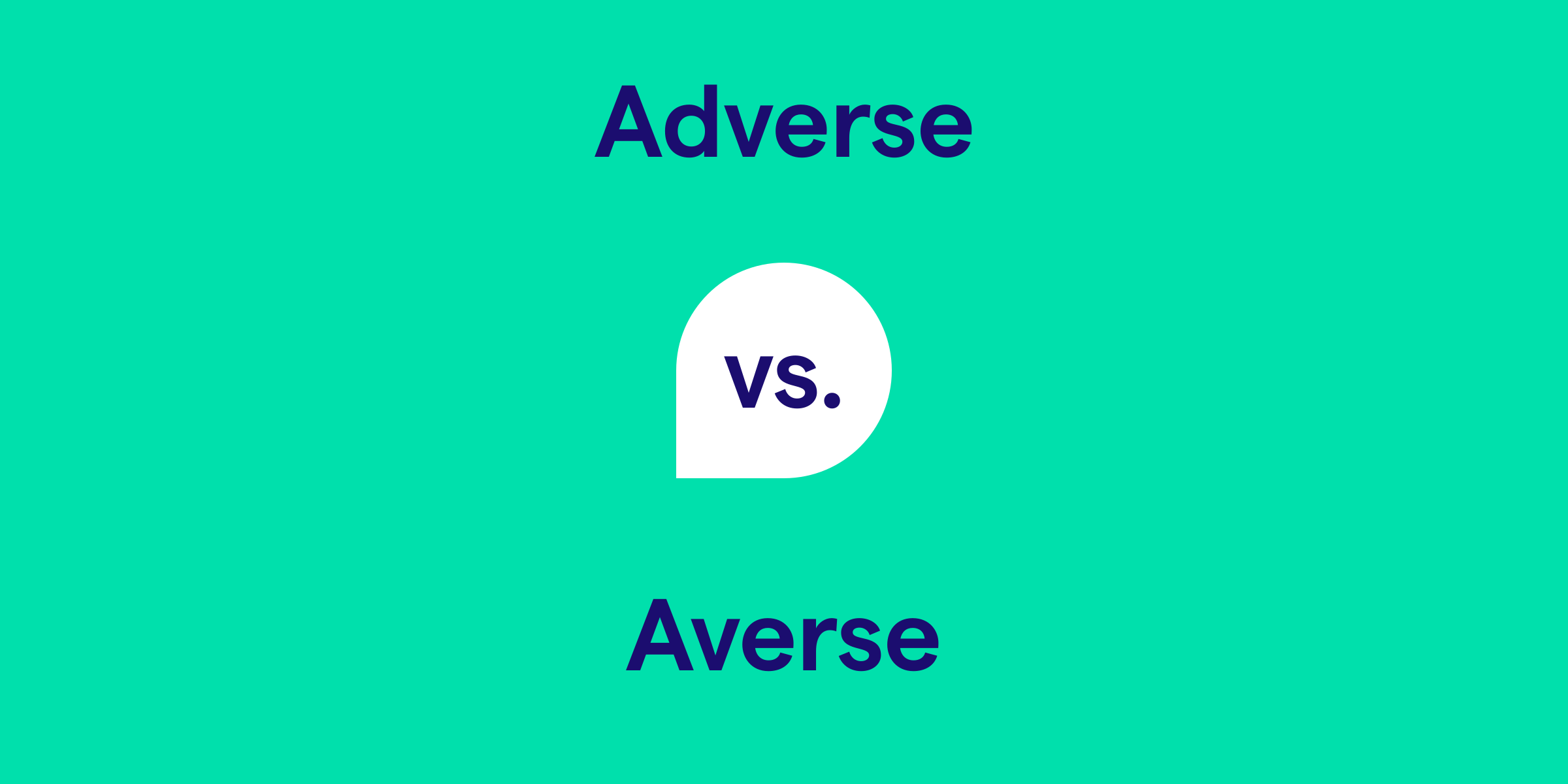Adverse vs. Averse: What's the Difference?
Although adverse and averse may sound similar, they hold distinct meanings and are used in different contexts. Adverse generally refers to something harmful or unfavorable, typically used when discussing events or conditions. Averse, on the other hand, describes a feeling of strong dislike or opposition toward something and is usually followed by the preposition 'to'.

How do you use the word adverse in a sentence?
Use adverse when you want to describe something detrimental or unfavorable. It often appears in discussions involving medicine, weather, and conditions affecting outcomes. This term is typically employed to talk about impersonal forces or reactions rather than personal feelings.
Examples of adverse in a sentence
- The adverse weather conditions led to the cancellation of the outdoor event.
- She had an adverse reaction to the medication, prompting the doctor to prescribe an alternative.
- Investors were concerned about the adverse impact of the new regulations on their profits.
How do you use the word averse in a sentence?
Averse should be your choice of word when you need to express a strong feeling of distaste or reluctance. It is personal and subjective, usually relating to someone’s feelings about an activity, concept, or object. Remember to pair it with the preposition 'to' when indicating the object of opposition.
Examples of averse in a sentence
- He is averse to taking risks, preferring to play it safe with his investments.
- As someone who is averse to spicy food, she avoided the hot sauce.
- They are not averse to the idea of moving abroad, but they require more information before making a decision.
Adverse and averse definition, parts of speech, and pronunciation
Adverse definition:
Adverse is an adjective that describes something preventing success or development; harmful or unfavorable.
Adverse parts of speech:
Adverse pronunciation:
Adverse is pronounced as /ˈædvɜːrs/.
Averse definition:
Averse is an adjective meaning having a strong dislike of or opposition to something.
Averse parts of speech:
Averse pronunciation:
Averse is pronounced as /əˈvɜːrs/.
Adverse is an adjective that describes something preventing success or development; harmful or unfavorable.
Adverse parts of speech:
- Adjective: The adverse effects of the storm were felt throughout the city.
Adverse pronunciation:
Adverse is pronounced as /ˈædvɜːrs/.
Averse definition:
Averse is an adjective meaning having a strong dislike of or opposition to something.
Averse parts of speech:
- Adjective: Despite being averse to high altitudes, he agreed to go on the mountain hike.
Averse pronunciation:
Averse is pronounced as /əˈvɜːrs/.
Adverse vs. averse in a nutshell
To sum up, adverse is an adjective used to describe detrimental conditions or effects, often relating to events or environments. In contrast, averse describes a personal sense of strong dislike or opposition, and is almost always followed by 'to'. Both terms have distinct meanings, and their proper usage is crucial for clear communication.
Get AI Writing Assistance Wherever You Type
Make sure your vocabulary is on point and every punctuation mark is in the right place, no matter where you’re working. Grammarly works across more than 1 million websites and apps so you can improve your writing without copying, pasting, or breaking focus.

More Commonly Confused Words
Interest piqued? Pore (not pour) over other commonly confused words to help your writing reach peak (not peek) performance.